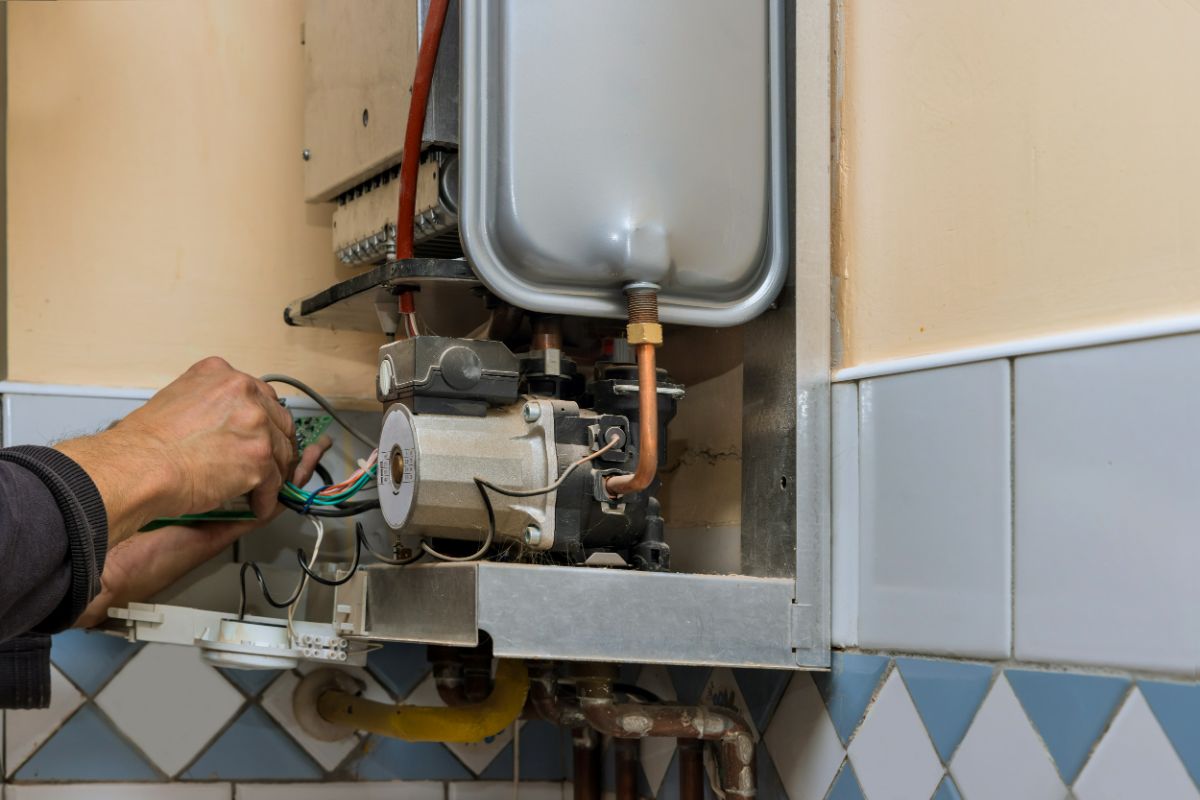Were you interested in info involving Tips on Maintaining a Water Heater?

Hot water is necessary for everyday comfort, whether it's for a refreshing shower or cleaning dishes. To guarantee your warm water system runs effectively and lasts longer, normal maintenance is crucial. This post offers useful tips and understandings on exactly how to preserve your home's hot water system to prevent disruptions and costly repairs.
Intro
Preserving your home's hot water system could appear complicated, but with a couple of easy actions, you can ensure it runs smoothly for many years ahead. This guide covers every little thing from comprehending your warm water system to DIY upkeep pointers and knowing when to contact specialist aid.
Importance of Maintaining Your Warm Water System
Routine maintenance not only expands the life expectancy of your hot water system but additionally ensures it runs effectively. Neglecting maintenance can bring about decreased performance, higher power costs, and even early failing of the system.
Indicators Your Warm Water System Needs Maintenance
Recognizing when your hot water system needs interest can protect against major issues. Watch out for indicators such as inconsistent water temperature, unusual noises from the heating unit, or corroded water.
Recognizing Your Hot Water System
Before diving into maintenance jobs, it's valuable to recognize the basic components of your warm water system. Commonly, this includes the hot water heater itself, pipelines, anode rods, and temperature level controls.
Month-to-month Maintenance Tasks
Regular regular monthly checks can assist catch minor problems prior to they rise.
Purging the Hot Water Heater
Flushing your water heater eliminates debris build-up, boosting efficiency and prolonging its life.
Checking and Replacing Anode Rods
Anode rods stop deterioration inside the tank. Inspecting and replacing them when worn out is important.
Checking and Readjusting Temperature Level Setups
Adjusting the temperature settings ensures optimal performance and security.
DIY Tips for Maintenance
You can do several upkeep jobs on your own to keep your warm water system in top condition.
Checking for Leakages
Consistently evaluate pipelines and connections for leaks, as these can lead to water damages and greater expenses.
Evaluating Pressure Relief Valves
Evaluating the pressure safety valve guarantees it works properly and avoids excessive stress accumulation.
Insulating Pipes
Shielding warm water pipes reduces warmth loss and can conserve power.
When to Call an Expert
While DIY upkeep is helpful, some problems require specialist know-how.
Complex Concerns Needing Professional Aid
Examples consist of major leakages, electric problems, or if your hot water heater is continually underperforming.
Regular Professional Upkeep Benefits
Professional upkeep can include detailed assessments, tune-ups, and guaranteeing conformity with security requirements.
Conclusion
Normal upkeep of your home's warm water system is important for performance, durability, and price financial savings. By complying with these tips and understanding when to look for expert aid, you can ensure a trustworthy supply of warm water without unanticipated disruptions.
How to Maintain an Instant Hot Water Heater
Before tinkering with your hot water heater, make sure that it’s not powered on. You also have to turn off the main circuit breaker and shut off the main gas line to prevent accidents. Also turn off the water valves connected to your unit to prevent water from flowing into and out of the appliance. 2. When you’re done, you have to detach the purge valves’ caps. These look like the letter “T†and are situated on either side of the water valves. Doing so will release any pressure that has accumulated inside the valves while at the same time avoid hot water from shooting out and burning your skin. 3. When the purge valves’ caps are removed, you have to connect your hosing lines to the valves. Your unit should have come with three hoses but if it didn’t, you can purchase these things from any hardware or home repair shops. You can also get them from retail stores that sell water heating systems. Read the user’s manual and follow it to complete this task properly. When the hosing lines are connected, open the purge port’s valves. 4. You should never use harsh chemical cleaners or solutions when cleaning your unit. Make use of white vinegar instead. It should be undiluted and you’ll probably use about 2 gallons. 5. Now flush your water heater. This task should probably take about 40 minutes. We can’t give you specific directions for this because the procedure is carried out depending on the type, model and brand of your heater. With that being said, refer to the user’s manual. 6. When you’re done draining the unit, you have to turn off the purge port valves again. Remove the hosing lines that you earlier installed on each of the water valves. Put the valve caps (purge port) back in their respective places and be very careful so as not to damage the rubber discs that are found inside these caps. 7. Now that everything’s back in place, check your user’s manual again to find out how to reactivate your water heating system. 8. Once it is working, turn one of your hot water faucets on just to let air pass through the heater’s water supply pipes. Leave the tap on until water flows smoothly out of it. https://www.orrplumbing.com/blog/2014/september/how-to-maintain-an-instant-hot-water-heater/

Hopefully you liked our post on Water Heater Maintenance Tips You Can't Afford to Forget. Many thanks for taking the time to read through our piece. Enjoyed reading our blog posting? Please share it. Let others check it out. I value your readership.
Check This Out